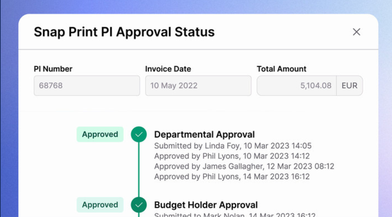
Success in business isn’t usually down to luck. Instead, it requires good strategic decisions, informed by a detailed understanding of your own business performance and the wider market. Evaluating business performance doesn’t need to be a complicated process, but it should be regular: these 6 steps cover all the bases.
1. Review your business activity: have you done what you wanted to do?
Your business goals should keep you focused. Set targets for your business to achieve, then conduct a regular business performance review to ensure that you’re where you want to be.
Areas to focus on include:
- Sales: have you performed as expected?
- Innovation: are new ideas developing on target?
- People: have employees and teams achieved their individual targets? Are you retaining staff or is staff turnover too high?
2. Efficiency: could your profit margin be improved?
The efficiency of your business operations is about the best use of resources: how are you doing what you do, and are you incurring wasteful costs? After all, the key to healthy profits is to reduce your outgoings as well as increasing your income.
- Operational costs: could these be reduced? Look at your utility bills, rent, staffing costs and other expenses.
- Time: are you wasting too much staff time on inefficient processes? For example, could you streamline your finance function so that time can be better spent on more profitable activities?
- Do your product prices or hourly rates bring in enough income? Do you need to put your prices up? Are loss leaders paying their way?
- Finance: are your sources of funding secure? Can you think of other ways to bring in money?
3. Look at the competition: can you take ideas from them?
Business performance doesn’t just depend on what you do within the company. Competing businesses could seriously affect your bottom line. It’s vital to keep a regular eye on other businesses in your field.
- How much do they pay their staff? Could you lose your best talent to a competing firm?
- What’s their pricing like?
- What is their target market?
- Are they offering anything that you don’t? And should you be doing it, too?
4. Keep an eye on wider trends: do you need to adapt?
We’ve seen that your business doesn’t exist in a bubble. As well as your competitors, the wider world needs to be considered when evaluating business performance. That could include the local and international economy, the market you’re part of, and technological progress.
- Have prices gone up or down? The cost of raw materials could dramatically affect the profit you make on your products.
- The exchange rate: is it affecting your profits? Could you source materials from elsewhere?
- What’s the next big thing in your field? Are you keeping up with new developments, or are customers likely to look elsewhere for what they need?
5. Review customer satisfaction: are people loyal to your business?
Customer satisfaction is an important measure of success, the happier customers are, the more likely they are to return to your products or services. Listening to feedback is also a great way to improve on your current offering, taking these learnings and actioning them. But how do you measure customer satisfaction? Here are some easy ways:
- Create a survey and share it with email subscribers
Monitor customer reviews and look for any recurring themes - what do they like? What’s missing from your offering? What are their pain points?
Explore customer retention rates. How many are returning customers? Do customers shop elsewhere, and if so, where?
6. Conduct performance reviews: are your employees happy?
Employees are the backbone of a company and so their happiness and productivity are a core measurement of overall business performance. An effective way to measure employee satisfaction is with performance reviews which provide insight into what employees are doing well, what they need support with and what motivates them. Here are some key questions to ask during performance reviews:
-
What recent accomplishments at work are you most proud of?
What goals have you met and which have you been unable to meet?
What motivates you at work?
What can I do to make your job more enjoyable?
What are you enjoying most in your role?
What are your most important goals for the business?
What are the benefits of evaluating business performance?
Evaluating business performance allows you to make informed decisions and plan ahead, knowing which areas require extra attention. Assessing performance enables goals to be set and improves overall efficiency, let’s take a look at some of the main benefits:
-
Improves communication — evaluating business performance opens up a conversation between management and employees. This honest discussion promotes the sharing of ideas and feedback — key to the success of a business.
Solves existing problems — taking an in-depth look at business performance will quickly identify problems, giving you the opportunity to resolve them.
Evolves new strategies — business performance evaluations also shine a light on what’s working. This insight helps develop new strategies, especially when researching competitors and customer satisfaction.
Fuels growth — measuring success is critical to the growth of your business. Regularly evaluating performance allows you to weed out any issues and double down on effective strategies. Constantly seeking improvement will only help the business grow further.
How the right accounting software is vital for evaluating business performance
A proper evaluation of your business can only take place if you have the means to access all the facts and figures with the tools to analyse them. With cloud accounting software from AccountsIQ you can access instant, customised reports on all areas of business performance.
Contact us for a quote or request a demo today.


